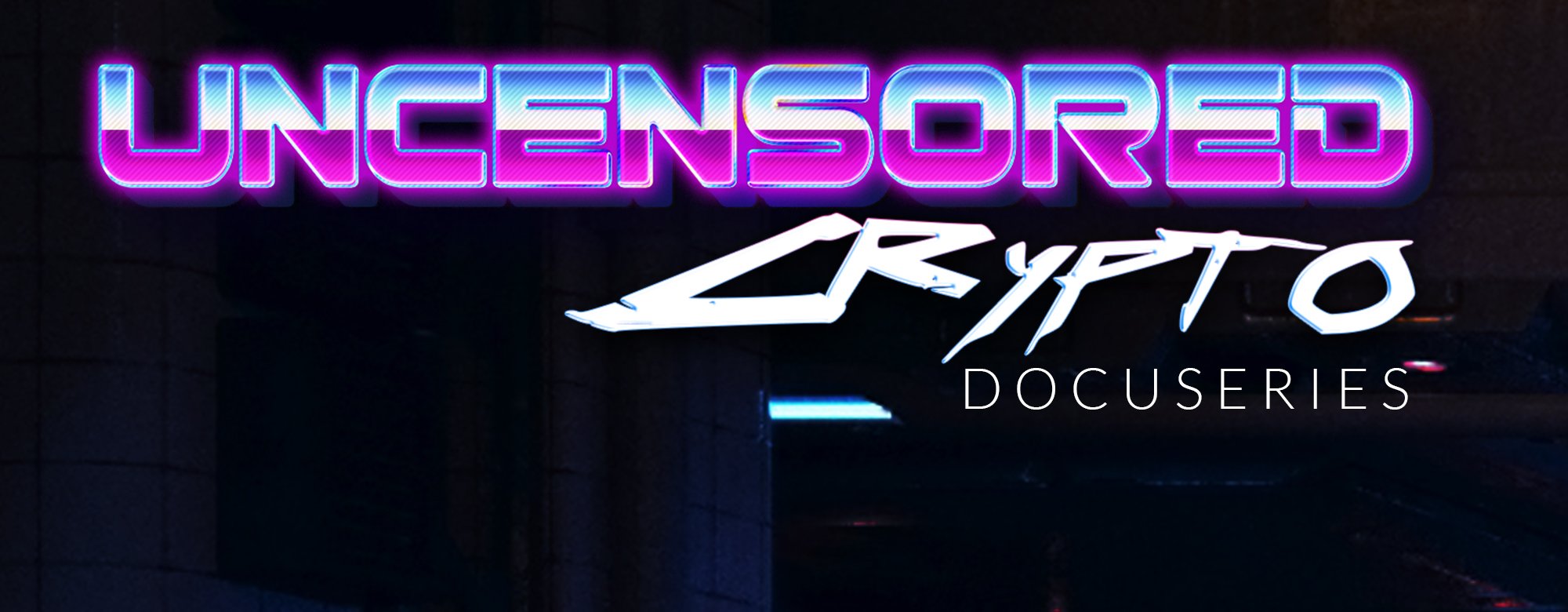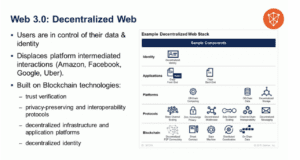By now, you are probably aware that Decentral Publishing will be launching its Uncensored Crypto docuseries. Here, we offer a preview of topics that will be discussed on the show, why the series was created, and what truly excites him about cryptocurrency. I sat down with the CEO, Michael Hearne, to discuss his upcoming documentary series, what he’s learned, and what aspects of the crypto world he’s excited about.
Why is there a need for “Uncensored Crypto”?

One of the first questions I asked was, “Why did Michael want to create a docuseries about cryptocurrency?” Michael answered that he was a CEO of a company several years ago, responsible for turning it around, but was also trading cryptocurrency at the same time. Eventually, he felt like he wanted to do something more meaningful.
Once he saw that cryptocurrency was addressing some very real and relevant issues, he knew that he wanted to create a docuseries to spread the word. He had previously been involved in creating other docuseries, so it felt like a natural move. With crypto about to change the world, why wouldn’t he dive in?
Ultimately, Michael feels like more people should know about crypto, blockchain, and all of its various use cases. He points out that while many people tend to “rage” about society’s issues, few are discussing tangible solutions. Michael feels like this kind of attitude is unproductive and that spreading awareness about potential solutions was more important.
Why censorship matters
There’s a lot of people that are interested in Bitcoin for different reasons. Some are excited that it offers an alternative to monetary policy, while others care more about the overall concept of decentralization. For Michael, the fact that Bitcoin is censorship-resistant is critical. He describes it as being “the issue behind the issues.”
In short, Michael believes that censorship leads humanity to very dark places. He brings up the role that propaganda played in the Holocaust, and how this propaganda thrived explicitly because of censorship. Since there was no way to combat the propaganda, it became extremely effective.
What’s the best way to fight against propaganda? For Michael, the answer is simple: give everyone a voice. He stressed that he isn’t here to paint a narrative one way or another, and that many of his guests disagree about the future of cryptocurrency and where it’s going. The point being: he isn’t here to censor anyone, either. Regardless, the fact that he feels this way about censorship is why he decided to name the docuseries “Uncensored Crypto.”
A profound moment: the problem with misinformation
 I asked Michael about moments during the docuseries where he felt like he was able to think about cryptocurrency differently. He brings up a conversation with Brock Pierce, an established blockchain entrepreneur who may be getting into politics in the near future.
I asked Michael about moments during the docuseries where he felt like he was able to think about cryptocurrency differently. He brings up a conversation with Brock Pierce, an established blockchain entrepreneur who may be getting into politics in the near future.
The conversation involved misinformation. Pierce was pointing out that blockchain’s immutability could solve a lot of issues with respect to provenance and authenticity. Then, the dialogue took an interesting turn.
Pierce pointed out that because of this technology, human beings will have to learn how to forgive…as a culture. Blockchain is immutable, after all; it never forgets.
What does this mean for the future? Michael thinks this was one of the most profound experiences he had recording the docuseries, and believes that it would be incredible if blockchain could actually help humans forgive each other.
The opportunity: a decentralized Internet will impede censorship
 In the world of blockchain technology, there are now so many different industries and sectors to consider. While artists are excited about the NFT space, countless other entrepreneurs are fascinated by other aspects of the cryptocurrency sector: tokenization, DeFi, the metaverse, and more. I asked Michael what’s the ONE thing that he’s the most excited about with respect to crypto, and the future.
In the world of blockchain technology, there are now so many different industries and sectors to consider. While artists are excited about the NFT space, countless other entrepreneurs are fascinated by other aspects of the cryptocurrency sector: tokenization, DeFi, the metaverse, and more. I asked Michael what’s the ONE thing that he’s the most excited about with respect to crypto, and the future.
He didn’t hesitate: it’s the concept of a truly decentralized Internet. He believes that Amazon dropping Parler was a mass act of censorship, and that it was essentially a “gangster move.” The deeper issue is the fact that the Internet’s hosting infrastructure is so centralized, but that won’t be the case with Web 3.0.
He brings up Napster as an example of decentralized web infrastructure, thanks to the fact that it was a peer-to-peer hosting platform. There was no way to go after millions of users, in different jurisdictions, with many of them using a VPN to cover their tracks. Similarly, the decentralized web would rely on users all over the world, which would threaten the fact that Google, Amazon, and Microsoft control so much of the Internet.
Why cryptocurrency regulation has a long road ahead
I asked Michael what he would say to politicians debating about cryptocurrency regulation for my last question. He laughed and replied that he would say: “God bless, you have a tough job ahead of you.”
He then offered a more nuanced take. Michael points out that politicians should strike a balance that makes sure that America benefits from innovation while also recognizing that investors need to be protected. There should be a way to protect novice cryptocurrency traders while allowing others to take more risks with their portfolios.
He also adds that developing a separate regulatory body for crypto for more insight and perspective would probably be worth it. Lastly, Michael says: “Ultimately, they should be doing a lot more listening than talking right now. It’s like trying to stop the Internet.”
How to watch Uncensored Crypto
The world premiere of the Uncensored Crypto docuseries will take place on January 18, 2022. You can sign up to be notified when it’s available at uncensoredcrypto.com.
Michael Hearne also hosts our Uncensored Crypto podcast for an in-depth look at what’s going on in the cryptocurrency sector.
About the Author

Michael Hearne
About Decentral Publishing
Decentral Publishing is dedicated to producing content through our blog, eBooks, and docu-series to help our readers deepen their knowledge of cryptocurrency and related topics. Do you have a fresh perspective or any other topics worth discussing? Keep the conversation going with us online at: Facebook, Twitter, Instagram, and LinkedIn.


